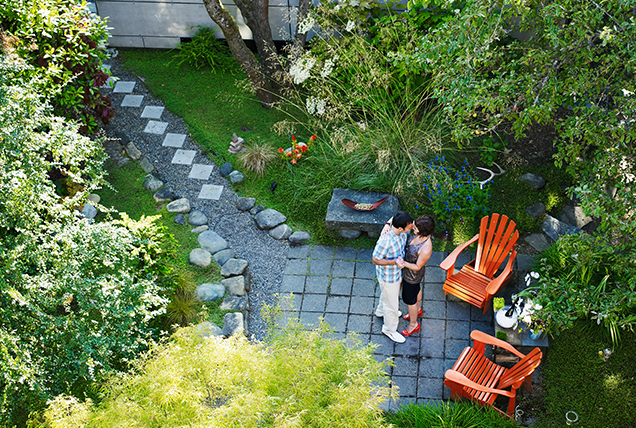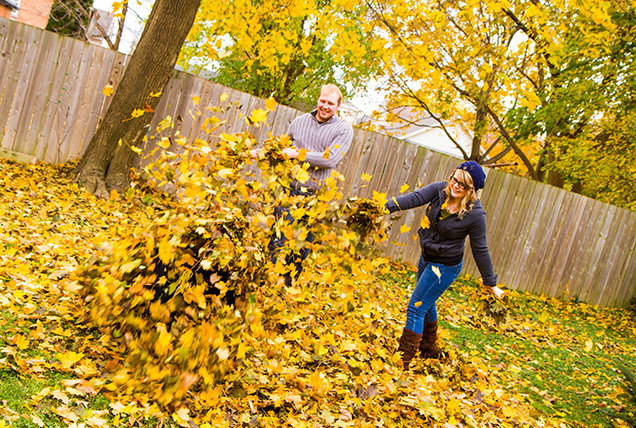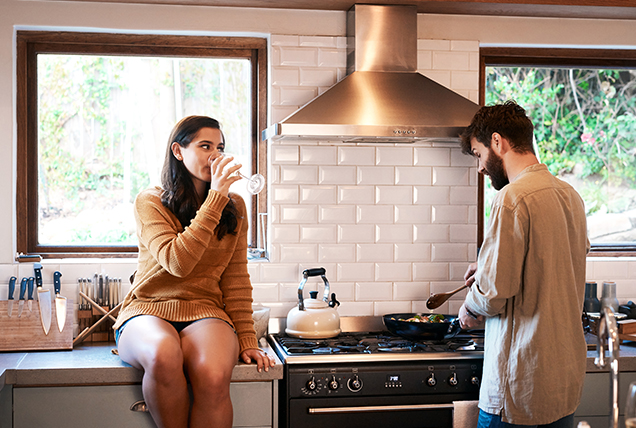21 Unexpected or Hidden Costs of Buying a Home
You’ve spent weekends glued to your favorite real estate listing sites “just looking at what’s out there” and virtually went through the process watching reality TV house-hunting shows. Now, you’re finally ready to start searching for your own house IRL.
You’ve done your research and know how much you have to have for a down payment. But once you start to dig in deeper, you may realize there’s a lot more to buying a home than the mortgage.
Check out this list of 21 hidden (or at least unexpected) costs tied to buying a home to help you be better prepared.
The fine print
- Closing costs
Closing costs are the fees you’ll have to pay at your home closing (when the title of the property is transferred from the seller to you), such as the application fee, points, and homeowners insurance premiums. According to a recent survey from Zillow, you’ll typically pay between 2% and 5% of the purchase price of the home.
- Property tax
Varying from town to town and home to home, property tax is an ongoing cost as long as you own property. Know that, in most instances, it will continue to rise rather than drop. It’s a consideration to factor in when targeting different cities and towns to live in. In most states, property tax is calculated based on the assessed value of the property and the local tax rate. Often this payment is folded into your monthly mortgage bill.
- Homeowners insurance
Before your lender will let you take out your mortgage, you’ll need to provide proof of homeowners insurance, which covers losses and damages to the home (like a tree limb on your roof) and items within it (for example, you might add a rider for your engagement ring to your policy), as well as liability coverage against accidents that might take place on your property (such as falls on icy stairs or slips in bathtubs). In many cases, when you pay your mortgage bill, you’ll be paying for this as well.
- Mortgage insurance
Maybe you don’t have 20% to put toward your down payment. That doesn’t have to stop you from buying a home. What it does mean is that you’ll likely need to take out mortgage insurance (also called PMI), which many lenders require to offset their risk. You’ll see this as a line item in your closing costs.
Outside your home

Your backyard can be a private oasis from the daily grind. Take steps to ensure it gives you peace and not anxiety.
- Driveway
Depending on its age and material, you could find there’s a cost to make needed repairs to the driveway. Understanding the material (concrete, asphalt, crushed stone, etc.) and the maintenance required — like filling potholes and ruts on a gravel driveway in the spring and fall or sealcoating asphalt each year — will help you understand the overall maintenance costs you’ll need to take into account.
- Lawn
Will you cut it yourself? Great. Now you’ll need to get the equipment to do that, and a place to store it if your house didn’t come with it. When I bought my first home, we were lucky that the sellers were downsizing, so they left us a shed full of tools and machines. But those machines still need to be maintained, and there’s an ongoing cost for that.
Hiring someone to take care of the lawn will save you time and the expense of the equipment, but be prepared for bi-weekly landscape bills (grass grows quicker than you think!). If your home has a sprinkler system, or you decide to install one, there’s the extra cost of water in the summer months to add to your water bill.
- Leaf/snow removal
If you live in a place where it snows regularly, you have two choices: DIY or hire someone. If you DIY, you’ll need the equipment to do it — shovels, salt, and maybe even a snow blower. On the upside, you can get some good cardio.

Movies might have you thinking that cleaning up leaves together is fun and romantic, but it can also be a chore. Be prepared to work either the cost of tools or the cost to hire someone into your seasonal budget.
When hiring someone to shovel, snow blow, or plow, the cost will vary depending on how much driveway you have and the overall level of effort (is there an easy place for them to pile snow or does it need to be moved around a lot?). The same will go for annual or biannual yard clean up of leaf debris.
- Trash
In some cities and towns, you’ll have to pay a trash fee. Sometimes it’s wrapped into your property tax (which gets bundled in with your mortgage payment). And if it’s not, you’ll need to use a private trash/recycling service or use the town landfill.
- Curb appeal
Do you love the way your new house looks from the street? Great — you’ll still have to pay to keep it that way. You might have annual flowers planted, which means each season you’ll need to swap them out, or add more mulch.
If you’re not happy with the look of your new place, you’ll want to put your mark on it. Flowers, mulch, walkways, mailboxes, and even your front door can alter the overall aesthetic appeal of your home.
- Deck, patio, or pool
Even if the deck is in great shape when you buy your home, you’ll need to take into account maintenance costs, especially if it’s made of wood. Your home’s patio will also require maintenance to keep it in tip-top shape. If you’re thinking of installing a pool or the home already has one, well, as you probably already know, there are plenty of costs associated with opening, closing, and maintaining your little piece of paradise.
- Home’s exterior
The house looks good now, but how long ago was it painted? A good, properly done paint job should last you about 5-7 years for wood and about 10 for stucco. If you’ve got vinyl siding, then you don’t have to worry about paint, but you might want to have the siding power washed every few years.
- Pest control
From tiny mice to annoying ants, homes can be havens for wildlife seeking refuge from the elements. If your home isn’t tight, small cracks can be a welcome mat for insects and small rodents. You may want to have preventative pest control done to the home. And if not, you may have to pay at some point to deal with unwanted visitors.
- Tree care
It doesn’t matter if the tree is planted on your property or not: if it hangs over your property, you’re responsible for the maintenance of it. Trees grow faster than you might realize and require pruning, pest treatments, and other preventative tasks. It’s a good idea to ask the seller about any issues with the trees either on your or the surrounding properties.
Inside your home

You’ve always dreamt of the perfect kitchen. Be sure you’ll have budget for new appliances if the existing ones will need replacing soon.
- Appliances
In some cases, home sellers will take an appliance or two with them to their new home. That means you’ll need to replace what they take. Depending on how old they are, you also may need to replace an appliance in the first few years of your new homeownership.
Make sure to ask or have your realtor ask about the age of the appliances and if they're under any warranties so you can properly budget without surprises. Sometimes, an appliance breaks down and needs repair. If it isn’t still under a warranty, it can get expensive. This is where having an emergency fund can be helpful.
- Flooring
The home you moved into has hardwood floors just like you wanted. However, you’ll still likely need some area rugs to cut down on noise and give your feet some comfort. It’s possible the rugs you had in your apartment or prior home will work, but you still might need to buy some new ones to match the size of the rooms. Maybe the house has carpeting where you’d rather have hardwood. Or perhaps you already know there’s hardwood underneath that wall-to-wall. Either way, you’ll need to save some funds to refinish the floor (even if you DIY, you’ll need to rent a machine), or rip out the carpet and install new flooring. Tip: If you plan on making any of these flooring changes, it's a good idea to do it before you move in all your furniture; otherwise, you could find yourself paying for storage while you do it.
- Furniture
Is your new space larger than your last residence? If you’re moving from an apartment or condo to a house, you’ll likely have rooms to furnish that you didn’t have before. Maybe you have a deck now (yay), or a guest bedroom. Because the sellers were downsizing when I bought my home, we got a complete dining room set, guest bedroom set, and a couch left behind for us. They weren't exactly my style, but they were able to tide me over until I had the money to replace them.
But, this is also a good opportunity to get rid of your mismatched hand-me-downs for a full, matching set of couches, a complete bedroom furniture set, or a kitchen table with matching chairs.
- Window coverings and lights
There’s always the chance you’ll be able to make your apartment curtains work in your new home, but you’ll likely need more of them. Lots of windows are great for bringing in natural light, but depending on how private your property is, you’ll need to be able to have some privacy as well. Window coverings can be expensive, and they add up faster than you think.
Windows themselves may need replacing or updating, especially in older homes. Some state governments have programs to help defray the cost. My home had the original 1966 windows that were incredibly drafty. Within the first year we made a plan to pay to replace all of them to new, more energy-efficient models.

Lighting can set the mood in your new home. From the fixture style to the location in the room, you can personalize your home for a vibe that’s all you.
Once the sun goes down or you close the curtains, lighting is another décor element you’ll need for your new home. You may want to install recessed lights, get new fixtures to fit your style, or need more lamps to properly light up your rooms. Perhaps you’ll want a ceiling fan/light combo that wasn’t there before.
- Utilities
If you’re moving from an apartment where your utilities were included in your monthly rent, you might have some sticker shock when it comes to paying utility bills at your new home. And even if you were covering all of the utilities yourself, you’ll have more rooms, which means it’ll take more electricity to light it up. Take that into account when deciding how big a home you want, because it does mean more rooms to heat and cool or provide power to (in addition to keep clean!).
- Security system
Feeling safe in your new home is important. Your house might come with a hardwired security system, which means you’ll be paying the monthly fee for monitoring should you choose to use it. Or you could use a system like Ring, which has a variety of pricing options. Even if you used a system with cameras before, having more rooms to cover may require some new purchases.
- Home tools
You might have had some tools for your apartment, perhaps a hammer or a screwdriver. But now that you’re a homeowner, it’ll be important to make sure you have, at the very least, a basic kit to tackle small jobs around the home. However, if your place is a fixer-upper and you plan on doing a lot of DIY, you’ll need more than a basic kit to get you through all those projects.
- Emergency costs
Things will break. A water pipe, the AC, your water heater. Whether you need to just repair it, or full-on replace it, there’s a cost associated. Having an emergency fund to give your budget some padding will be a big relief for when, not if, it happens. And it will happen on the most inconvenient day possible, so at the very least, you’ll be happy to be prepared to cover the expense.
What to take away
Of course, this list doesn’t include everything (like solar panels), nor will you need to address every item here. Still, it’s a good overview of all the things that first-time homeowners aren’t always thinking of but can be a drain on your finances. It’s better to know what could be coming at you and to be prepared for it than be surprised.
Plus, many of the items on this list aren’t things you have to do right away, so you can take time to figure out how to budget for them as they come up.
Ready to take the next step?
Buying a home is a life-changing decision. We can help you develop the right plan to save for a home and find the right mortgage for you. For personalized assistance in preparing for a home purchase, talk with a Citizens Bank Loan Officer.
